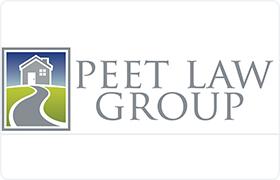Fair Haven Land Use & Zoning Lawyer, Vermont
Sponsored Law Firm
-
 x
x

Click For More Info:
-
Law Office of Fred V. Peet
55 Patchen Rd South Burlington, VT 05403» view mapReal Estate Law Vermont’s Real Estate Law Source
The Law Offices of Fred V. Peet, P.C. concentrates its practice on residential and commercial real estate transactions.
800-960-0161
Jay A. Kenlan
Land Use & Zoning, Environmental Law Other, Business Organization, Real Estate Other
Status: In Good Standing
Herbert G. Ogden
Land Use & Zoning, Litigation, Lawsuit & Dispute, Employment
Status: In Good Standing
 Fred V. Peet South Burlington, VT
Fred V. Peet South Burlington, VT Practice AreasExpertise
Practice AreasExpertise
